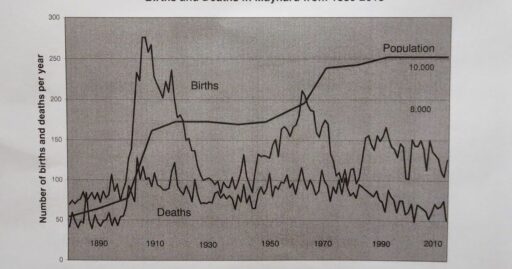Table of Contents
As we delve into the evolving landscape of data science jobs, it’s clear that the field is experiencing rapid growth and transformation. This article explores the latest trends in data scientist jobs, highlighting the burgeoning opportunities and inherent challenges that come with them. From the expansion of the digital economy to the increasing importance of specialized roles, we uncover what the future holds for aspiring and current data science professionals.
Key Takeaways
- The job market for data scientists is expected to grow by 36% from 2021 to 2031, with IT and tech industries dominating job advertisements.
- Specializations in machine learning, AI, and big data engineering are highly sought after, as are industry-specific roles in healthcare, finance, and e-commerce.
- Data science careers are being shaped by constant innovation, with a projected 35% growth from 2022 to 2032 and an average of 17,700 job openings annually.
- The top data roles in demand for 2024 include Data Analyst, Analytics Manager, and Data Scientist, reflecting the field’s adaptability to the digital economy’s needs.
- Technological advancements and shifting methodologies in data science are impacting insights and decision-making, driving the need for continuous learning and adaptation.
Evolving Job Market Dynamics in Data Science


Projected Employment Growth for Data Scientists
The landscape of data science careers is witnessing a significant surge in demand. Between 2022 and 2032, employment of data scientists is expected to increase by approximately 35%, according to the Bureau of Labor Statistics (BLS). This growth trajectory is substantially higher than the average for all other professions, signaling a robust future for those in the field.
The consistent expansion in the data science sector is indicative of the critical role data analysis and interpretation play in modern business strategies.
The IT and technology sectors are leading the charge, with nearly half of the job advertisements on platforms like LinkedIn. However, opportunities are not confined to tech alone; a diverse range of industries are seeking data science expertise. Interestingly, despite the high demand, only a third of job listings explicitly require a data science degree, highlighting the value of practical experience and specialized skills over formal education in some cases.
| Year | Projected Job Growth (%) | Expected New Jobs (millions) |
|---|---|---|
| 2026 | 28 | 11.5 |
Dominant Industries for Data Science Careers
The landscape of data science careers is diverse, with certain industries emerging as dominant players in the quest for data-driven insights. The digital economy’s expansion has made data an invaluable asset across various sectors. Data scientists find themselves at the heart of innovation, whether in tech-centric fields or traditional industries adapting to the new data paradigm.
- Technology and IT services
- Healthcare
- Finance and Banking
- E-Commerce and Retail
- Manufacturing and Logistics
Each industry presents unique challenges and opportunities, requiring a specialization within data science to match. For instance, healthcare data scientists may focus on predictive analytics for patient care, while their counterparts in finance might concentrate on algorithmic trading strategies.
The field offers a broad range of opportunities, allowing professionals to specialize in areas such as machine learning, artificial intelligence, or big data engineering.
As the demand for data expertise continues to grow, so does the need for professionals who can navigate the complex landscape of databases, analytics, and business intelligence. Skills in R vs. Python, understanding discrete probability distribution, and proficiency in SQL vs NoSQL are becoming increasingly important, along with practical tips on using the random forest algorithm in Python.
Educational Requirements and Job Opportunities
The landscape of data science is rapidly evolving, with a growing emphasis on specialized education and training. As the demand for data-driven decision-making increases, so does the need for skilled data scientists who are not only adept at handling data but also possess a deep understanding of the specific domains they operate in.
Educational pathways for aspiring data scientists are diverse, ranging from traditional degrees in computer science or statistics to specialized programs focusing on data science and analytics. The following table highlights the anticipated job growth and opportunities in the field:
| Year | Annual Job Growth | Expected New Jobs |
|---|---|---|
| 2026 | 28% | 11.5 Million |
Professionals with expertise in machine learning, artificial intelligence, and big data engineering are particularly in demand. These roles often require advanced degrees or certifications, reflecting the industry’s preference for highly qualified individuals.
The digital economy’s expansion and the increasing value of data assets underscore the importance of data scientists in today’s job market. Their role is crucial in driving innovation and providing a career path that is both intellectually stimulating and filled with growth opportunities.
Specialization and Industry-Specific Opportunities


Machine Learning and AI Specializations
The landscape of data science is continually evolving, with Machine Learning (ML) and Artificial Intelligence (AI) specializations becoming increasingly critical. These fields are rapidly overtaking traditional data science roles, as automation and sophisticated algorithms begin to dominate the industry.
Professionals in this niche are expected to have a robust foundation in computer science, statistics, and mathematics, and are often proficient in programming languages such as Python and R. The distinction between a Machine Learning Scientist and a traditional data scientist lies in their focus on researching and developing new methods to advance the field of machine learning.
The integration of AI and ML into data science not only enhances the ability to analyze large datasets but also propels the development of innovative solutions that can predict and shape future trends.
Here’s a glimpse at some of the key roles within this specialization:
- Machine Learning Scientist: Researching new data approaches and algorithm development.
- AI Engineer: Implementing and managing AI applications and infrastructure.
- ML Engineer: Bridging the gap between data scientists and engineers to operationalize machine learning models.
Big Data Engineering Roles
The role of a Data Engineer is pivotal in today’s data-centric organizations. These professionals are tasked with creating the backbone for data analytics by ensuring the seamless collection, storage, and retrieval of large data sets. Their expertise in database management, ETL processes, and big data technologies like Hadoop and Spark is crucial for maintaining data integrity and accessibility.
In the landscape of data science jobs, Data Engineers stand out for their specialized skills in building and maintaining the infrastructure required for high-volume data processing. The demand for these roles is reflected in the variety of industries seeking to harness the power of big data.
The big data revolution has made Data Engineering an indispensable part of any data-driven enterprise. Their work enables companies to leverage data for strategic decision-making and to gain a competitive edge.
According to recent job market analyses, the following are the top data roles in demand, with Data Engineering being a key area of focus:
- Data Analysis / Business Analysis
- Data Science
- Business Intelligence
- Data Analytics Consulting
- Data Engineering
Employers are increasingly preferring onsite or hybrid work arrangements for these roles, indicating a trend towards more collaborative and interactive work environments in the data science field.
Data Science in Healthcare, Finance, and E-Commerce
In the healthcare sector, data science has become a cornerstone for advancing patient care and medical research. By analyzing vast amounts of patient data, data scientists are able to contribute to more accurate diagnoses, effective treatment plans, and predictive models for disease progression. Machine learning algorithms are particularly impactful, as they can discern patterns in medical imagery and forecast patient outcomes, which can be life-saving and cost-reducing.
In the realm of finance, data science aids in making more informed financial decisions. It enables the analysis of market trends, risk assessment, and fraud detection, thereby safeguarding assets and optimizing financial strategies.
E-commerce businesses harness data science to transform the shopping experience. Retail giants like Amazon utilize data analytics to tailor product recommendations and enhance supply chain efficiency, leading to improved customer satisfaction and increased profitability.
The integration of data science across these industries not only streamlines operations but also enriches the customer experience, ultimately driving business growth and innovation.
The Future of Data Science Careers


Innovation and Industry Trends Shaping Data Science
The landscape of data science is continually transformed by innovative technologies and industry-specific trends. As we delve into the future, these trends are not only redefining the tools and methodologies used by data scientists but also the very nature of data-driven decision-making.
- Artificial Intelligence (AI) and Machine Learning (ML) remain at the forefront, with advancements leading to more sophisticated predictive models and analytics.
- The Internet of Things (IoT) is expanding the data ecosystem, providing a surge of real-time data for analysis.
- Deep Learning techniques are becoming more accessible, enabling breakthroughs in image and speech recognition.
The synergy between data science and emerging technologies is crafting a new horizon for the field, where the potential for innovation is boundless.
This year marks a significant shift, with companies intensifying their focus on research and development to devise superior methods for data creation, storage, and analysis. The drive towards hybrid technologies is evident, suggesting a future where data science is seamlessly integrated with other disciplines.
The Digital Economy and the Role of Data Scientists
In the rapidly expanding digital economy, Data Scientists have become pivotal in harnessing the power of data for strategic advantage. Their expertise is sought after across various sectors, translating complex data into actionable insights for businesses. The role of a Data Scientist is multifaceted, involving rigorous scientific analysis, complex data management, and the ability to communicate findings to inform decision-making.
Data Scientists are at the forefront of innovation, employing machine learning and predictive modeling to anticipate trends and shape business strategies. They serve as the architects of data-driven approaches, crucial for organizations aiming to thrive in the digital marketplace. Their versatility across industries underscores their importance in today’s data-centric world.
- Machine Learning & Predictive Modeling: Forecasting trends and informing strategies.
- Cross-Functional Collaboration: Providing insights for decision-making across departments.
- Communication & Visualization: Making complex data understandable for all stakeholders.
The role of Data Scientists is not just intellectually demanding but also central to the digital transformation of businesses. They are the linchpins in synthesizing complex data into practical, strategic actions.
Anticipated Job Openings and Career Prospects
The landscape of data science careers continues to be vibrant and promising, with a steady stream of job openings anticipated in the coming years. The demand for data professionals is not just limited to tech giants; businesses across various sectors are seeking to harness the power of data to drive decision-making and innovation.
According to recent analyses, the following roles are particularly sought after in the data job market:
- Data Analyst
- Analytics Manager
- Data Scientist
These roles are not only prevalent but also evolving, with a growing emphasis on specialized skills such as data analytics, Python programming, and machine learning techniques like the random forest algorithm. Employers are increasingly valuing candidates who can blend technical expertise with creative data visualization and strategic thinking.
The choice of industry can significantly impact a data scientist’s career trajectory. For instance, technology, despite recent layoffs, continues to lead in data hiring, followed closely by sectors like healthcare and finance. Understanding the nuances of each industry, from SaaS revenue models to healthcare data privacy, is crucial for those looking to excel in their data science careers.
As the digital economy expands, the role of data scientists becomes more central, with their insights shaping everything from marketing strategies to product development. The ability to analyze and interpret complex datasets is becoming a cornerstone of competitive advantage in the modern business landscape.
Navigating the Data Science Job Market in 2024


A Glance into the Data Job Market
As we delve into the data job market of 2024, it’s evident that the landscape has undergone significant changes. The demand for data professionals remains robust, despite the fluctuations in the tech industry and broader economic challenges. The market has seen a shift in the types of roles that are in high demand, with Data Analysts, Analytics Managers, and Data Scientists leading the pack.
The preferences of employers have also evolved, with a clear inclination towards flexible work arrangements. Remote, onsite, and hybrid work modes are now common, reflecting the changing dynamics of the workplace. Moreover, the geographical distribution of data jobs has shifted, with certain locations emerging as hotspots for data professionals.
The salary and skills required for data roles have become more diverse, mirroring the complexity and specialization of the field.
Here’s a snapshot of the data job market in 2024:
- Most in-demand data roles: Data Analyst, Analytics Manager, Data Scientist
- Preferred work modes: Remote, Onsite, Hybrid
- Hotspots for data jobs: Technology hubs, major cities
- Salary range: Varies with role and experience
Top Data Roles in Demand
As the data landscape continues to evolve, certain roles have emerged as particularly sought after by employers in 2024. Data Analysts, Analytics Managers, and Data Scientists stand at the forefront of this demand, reflecting the growing need for professionals who can interpret and leverage data effectively.
In addition to these roles, the market also shows a strong interest in:
- Data Analysis / Business Analysis
- Business Intelligence
- Data Analytics Consulting
- Data Engineering
These roles highlight the diverse skill sets required in the data science field, from technical expertise to strategic thinking. Employers are not only seeking ‘data warriors’ with strong analytical capabilities but also value problem-solving, communication, and stakeholder management skills.
The versatility and adaptability of data professionals are more crucial than ever, as they navigate a job market that increasingly favors onsite or hybrid work arrangements over fully remote positions.
Working Conditions for Data Scientists
The working conditions for Data Scientists are as diverse as the sectors they serve. A typical day involves a blend of data analysis, problem-solving, and collaboration with cross-functional teams. The rise of remote work has introduced a new dimension of flexibility, allowing data professionals to contribute from virtually anywhere.
- Work Environment: Often in modern offices or co-working spaces, with increasing opportunities to work remotely.
- Work Schedule: Predominantly full-time with potential for extra hours during project crunch times.
- Nature of Work: Computer-based, involving data analysis software, programming, and visualization tools.
The role of a Data Scientist is intellectually stimulating, requiring a keen eye for detail and a commitment to accuracy. The satisfaction derived from uncovering insights and driving business decisions is a notable aspect of the job.
Given the high demand for data science expertise, those aspiring to enter the field typically need a strong educational foundation in IT, computer science, or a related discipline, complemented by skills in mathematics, programming, and an understanding of business dynamics.
Emerging Data Science Trends and Their Impact


Technological Advancements and Methodologies
Staying abreast of the latest technologies and methodologies is essential for data scientists. The field is rapidly evolving, with new tools and techniques emerging regularly. Balancing precision with practicality in models is a critical skill, especially when dealing with unstructured data and managing expectations across interdisciplinary teams.
The integration of advanced methodologies into daily operations is not just about adopting new tools; it’s about fostering a culture of continuous learning and adaptability.
The impact of these advancements is evident across various sectors:
- Health Care Advancements: Improved patient care and medical research through data analysis, leading to better diagnoses and treatment plans.
- Financial Decision-Making: Enhanced predictive models for financial markets, aiding in more accurate and timely decisions.
- Weather Forecasting: More reliable storm predictions through historical data analysis, potentially saving lives and minimizing property loss.
As these technologies continue to evolve, data will play an increasingly significant role in fostering innovation and enhancing creativity across a wide range of sectors.
The Shift in Data Science Practices
The landscape of data science is continually evolving, with the adoption of data science best practices and new technologies playing a pivotal role. As the field matures, data scientists are increasingly expected to not only manage and analyze data but also to build and maintain relationships with key stakeholders to understand evolving business needs. This shift emphasizes the importance of communication and collaboration in driving successful outcomes.
- Navigating the Data Revolution: The current trends in data science are marked by transformative technologies. Data scientists must now be adept in areas such as AI-powered automation, natural language processing (NLP), and ethical considerations in data usage.
- Decentralized Computing: Another significant trend is the move towards decentralized computing, which impacts how data is stored, processed, and accessed.
The work environment for Data Scientists is dynamic and varies across industries. With the rise of remote work, there’s increasing flexibility, allowing for a blend of traditional office settings and the ability to work from various locations.
Impact on Insights and Decision-Making
The impact of emerging data science trends on insights and decision-making cannot be overstated. Data scientists play a pivotal role in extracting insights and value from data, informing business strategies and building predictive models that are integral to decision-making processes across various industries.
-
Continuous Improvement: Data science is an iterative process, where the best projects are not static but evolve through continuous monitoring and refinement of models. This ensures that insights remain relevant and effective as conditions change.
-
Cross-Functional Collaboration: The success of data-driven decision-making often hinges on the ability to work across different departments. This collaboration fosters a deeper understanding of context and tailors insights to specific business needs.
Augmented analytics has revolutionized the way we interact with and explain data insights, facilitating easier data exploration and analysis. The integration of machine learning and natural language processing has simplified obtaining, cleaning, and finding correlations in data, as AI handles many of these tasks.
The table below summarizes the key aspects of how data science impacts insights and decision-making:
| Aspect | Description |
|---|---|
| Predictive Modeling | Integral to strategic decision-making |
| Iterative Process | Continuous improvement of models |
| Collaboration | Cross-functional teams enhancing insights |
| Augmented Analytics | Simplified interaction with data insights |
Conclusion
As we look towards the future of data science, it is evident that the field is poised for substantial growth, with a projected employment increase of 36% from 2021 to 2031. The versatility of data science careers, from machine learning and artificial intelligence to big data engineering, offers professionals a plethora of opportunities across various industries. Despite the technical nature of the field, only a third of job advertisements require a specific data science degree, highlighting the accessibility of data science roles to a broader range of candidates with diverse skill sets. The digital age continues to evolve, and with it, the role of data scientists becomes ever more critical in shaping the landscape of technology and business. For those considering a career in this dynamic and innovative field, the prospects are not only promising but also indicative of a career path rich with intellectual challenges and opportunities for growth.
Frequently Asked Questions
What is the future outlook of data science?
The job outlook for data scientists is highly positive, with a projected growth of 35 percent from 2022 to 2032. This growth rate is much faster than the average for all occupations, with an average of about 17,700 job openings for data scientists anticipated each year.
What are the future careers in data science?
Data science is an expanding field, witnessing a rising demand for data scientists across diverse industries such as finance, healthcare, technology, and retail. Careers include Data Analyst, Analytics Manager, Data Scientist, Data Engineer, Machine Learning Scientist, and Analytics Consultant.
What is the job trend for data science?
The employment rate for data scientists is projected to increase by 36% from 2021 to 2031. Nearly half (49%) of the job advertisements on LinkedIn are in the IT and tech industry. Around 6% of data scientist job offers are on various job portals, and only 33% of job ads explicitly require a data science degree.
What are the top data roles in demand in 2024?
Data Analyst, Analytics Manager, and Data Scientist are the top data roles in demand in 2024, reflecting the growing need for professionals who can analyze and interpret complex data to drive business decisions and strategy.
What are data science trends?
Data science trends are the evolving patterns, technologies, methodologies, and practices that shape the field of data science in a given period. These trends often reflect advancements, shifts in focus, and emerging technologies that impact how data is collected, analyzed, and utilized to drive insights and decision-making in various industries.
What are the working conditions for data scientists?
Data scientists typically work in office settings, often as part of a team. They may have flexible working conditions, including the option to work remotely. The work environment is intellectually stimulating, with a focus on problem-solving, data analysis, and translating complex information into actionable insights.





